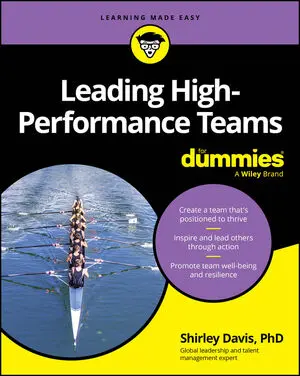Conducting a performance appraisal can be stressful for a manager just as it is for the employee. Using the right words, however, can help motivate the employee and build understanding between the manager and employee. By including these words in your feedback, you greatly increase the likelihood that your comments will actually be heard and that your employee's performance will improve.
The employee's name. When someone hears her own name, she reacts. She may turn, jump, flinch, or smile, but she's not likely to ignore it, nor is she likely to ignore what happens after her name is called. By saying your employee's name before providing her with feedback, you're improving her readiness to listen carefully to your next words — and to act on them.
Achievement. Your employees can certainly experience feelings of achievement as they carry out their work, and they can give themselves any number of positive messages. However, when they hear you use the word achievement, its true motivational impact is released. After all, you can tell yourself that you achieved an important landmark, but this feedback is far more compelling when voiced by your manager.
Build. The word build inherently assumes that something positive is going to be designed, created, and brought to life. In this way, it sets off positive emotions as soon as it's heard or seen.
Include build across the broad spectrum of employee performance — for example, when you're talking about building productivity, output, relationships, knowledge, skills, strengths, teamwork, performance, and profits.
Can. By using the word can when appraising your employees, you're sending a subtle message — not only in terms of positive expectations but also in terms of your confidence in the employees' abilities to perform successfully. The more your employees hear what they can do, the more likely they are to do it.
Growth. Employees want to know whether and how they've been growing, and by including the word growth in your comments, you provide them with an answer that is clear, meaningful, and energizing — and encourage them to repeat the behaviors that have helped them grow.
Profit. By keeping profit in mind, any employee becomes far more likely to take small or large steps to help the company be more successful.
Many employees make decisions about changing their behavior as a result of performance appraisal feedback by asking themselves, "What's in it for me?" One of the most effective ways to answer this question is to clearly show your employees how they will "profit" by taking the actions that you're suggesting.
Promotion. Every employee remembers his first promotion with pride, and simply hearing the word promotion brings back at least a hint of those positive feelings. Plus, promotions have long been found to be a strong source of employee motivation. The result is that both of these factors contribute to the long-lasting positive emotional charge associated with the word promotion.
Success. Although your feedback will still have its share of rates, ratios, and percentages, including the word success wraps the data in a motivational package that gives your employees a strong sense of recognition and personal competence.
Thanks. One powerful word that you can easily overlook is thanks. If you forget to use the word thanks, you're losing a valuable and cost-effective opportunity to raise an employee's spirits, morale, and sense of self-worth.
Yes. The word yes is particularly powerful because it plays a critical role in building mutual understanding and agreement. You want your employees to listen to your comments and act on them; the more they hear the word yes, the more likely they are to do exactly that.






